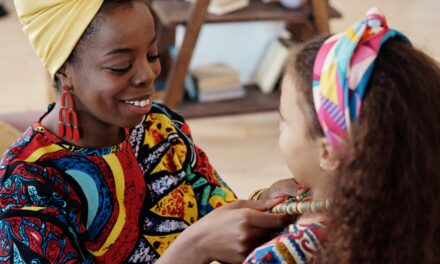The stereotype of “The Angry Black Person” is a harmful and unfair generalisation that portrays Black individuals as constantly angry, aggressive, or prone to violence. This stereotype has its roots in systemic racism and prejudice, perpetuating negative and dehumanising images of Black people. It is important to recognise that anger is a natural emotion experienced by people of all races and ethnicities. However, when anger is attributed solely to Black individuals as a defining characteristic, it reinforces racist beliefs and contributes to the marginalisation and mistreatment of Black people.
The stereotype of “The Angry Black Person” is deeply rooted in historical and ongoing racial discrimination, including the devaluation of Black lives, unequal access to opportunities, and the portrayal of Black people in media. It is often used to dismiss or invalidate the legitimate grievances and experiences of Black individuals when they express frustration or speak out against injustice.
It is crucial to challenge and reject stereotypes like “The Angry Black Person” by promoting inclusivity, empathy, and understanding. Recognising the diversity and complexity of individuals within any racial or ethnic group is essential for combating stereotypes and promoting equality. Engaging in open and respectful dialogue, listening to the experiences of others, and actively educating ourselves about racial issues are crucial steps in dismantling stereotypes and fostering a more inclusive society.
Overcoming the “angry Black stereotype” requires collective efforts from individuals, communities, institutions, and society as a whole. Here are some steps that can contribute to challenging and dismantling this harmful stereotype:
1. Education and awareness: Educate yourself and others about the history of racial stereotypes, including the “angry Black person” stereotype. Understand its origins, impact, and how it perpetuates systemic racism. Engage in critical discussions about race and stereotypes to raise awareness and challenge misconceptions.
2. Self-reflection and empathy: Examine your own biases and assumptions about race. Reflect on how stereotypes, including the “angry Black person” stereotype, may have influenced your perceptions and attitudes. Cultivate empathy by actively listening to the experiences and perspectives of Black individuals without judgment.
3. Amplify diverse voices: Encourage and support diverse representation in media, literature, and other forms of storytelling. Seek out and promote narratives that depict the complexity and humanity of Black individuals, showcasing a range of emotions, experiences, and perspectives beyond stereotypes.
4. Engage in inclusive dialogue: Foster open and respectful conversations about race and stereotypes. Encourage active listening, empathy, and understanding. Create safe spaces where people can share their experiences and challenge stereotypes without fear of judgment or reprisal.
5. Advocate for social justice: Stand up against racial injustice and discrimination. Support organisations and initiatives that fight against systemic racism and promote equality. Use your voice and privilege to advocate for policies and practices that address racial disparities and uplift marginalised communities.
6. Address systemic issues: Recognise that the “angry Black person” stereotype is rooted in broader systemic issues, such as unequal access to resources, opportunities, and representation. Support efforts to address these systemic barriers, including advocating for equitable education, employment, and criminal justice reform.
7. Allyship and solidarity: Actively work as an ally in the fight against racial stereotypes and discrimination. Stand in solidarity with Black individuals and communities by amplifying their voices, challenging stereotypes when you encounter them, and actively working towards racial justice and equality.
It is important to avoid stereotyping any racial or ethnic group. People’s emotions and experiences are diverse and complex, and they should not be reduced to a single emotion or characteristic. Engaging in open dialogue, actively listening to the experiences and perspectives of others, and challenging our own biases can contribute to a more nuanced and empathetic understanding of the emotions and experiences of individuals, including those within the Black community.
Overcoming stereotypes is an ongoing process that requires self-reflection, education, and action. By collectively challenging and dismantling the “angry Black person” stereotype, we can strive for a more inclusive and equitable society.












